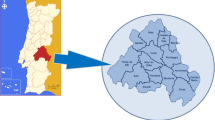Abstract
During its technocratic development, humanity has faced many global problems caused by inequality in socio-economic systems. To a large extent, these problems affected rural areas. Economic growth, traditionally regarded as a critical condition for social development, often leads to a deterioration of the economic and social situation of the rural population and the destruction of agro-ecological systems. This study aims to analyze the concepts of spatial development that underlie national strategic decisions on the resource potential of rural areas. The study involves two concepts of spatial development: (1) polarized spatial development (controlled contraction) and (2) endogenous economic growth. Both concepts claim that rural areas have low development potential, which assigns them the role of a resource generator for urban development. The current socio-economic situation in rural Russia and its development trends confirm this assumption. An analysis of demographic processes showed that since the beginning of the twenty-first century, two phenomena have been spreading in rural areas of Russia, leading to the degradation of human potential: depopulation and social desertification. The situation is aggravated by the marked informational inequality between residents of big cities and rural settlements, which has both social and economic consequences. In the information society, the qualitative and quantitative insufficiency of human and information resources in rural areas accelerates the degradation of other development resources. This situation cannot be improved by local investment in the material resources of socio-economic systems. Therefore, to solve the problem of sustainable development of rural territories, it is necessary to go beyond the framework of the considered concepts of spatial development and create mechanisms for forming the resource potential of territories with a priority role of human and information resources.
Access this chapter
Tax calculation will be finalised at checkout
Purchases are for personal use only
Similar content being viewed by others
References
Boudeville J (1966) Problems of regional economic planning. Edinburgh University Press, Edinburgh, UK
Federal State Statistics Service of the Russian Federation (2017) Social status and living standards of the population of Russia. Moscow, Russia, Rosstat
Federal State Statistics Service of the Russian Federation (2019) Demographic yearbook of Russia, 2019. Moscow, Russia, Rosstat
Federal State Statistics Service of the Russian Federation (2020) Labor market, employment, and salaries. Retrieved from https://gks.ru/labor_market_employment_salaries
Knight FH (1944) Diminishing returns from investment. J Polit Econ 52:26–41
Kuklin AA, Korobkov IV (2018) The choice of an effective trajectory of the socio-economic development of the region. Econ Region 14(4):145–155
Kurushina EV, Petrov MB (2018) Success criteria for spatial development projects based on interregional integration. Reg Econ 14(1):176–189
Myasnikov AA (2018) Analysis of the determinants of total factor productivity in Russian regions. Econ Region 14(4):169–180
Omelchenko E, Poliakov S (2018) Everyday consumption of Russian youth in small towns and villages. Sociol Rural 58(3):644–664
Perroux F (1950) Economic space: Theory and applications. Q J Econ 64:89–104
Solow RM (1956) A contribution to the theory of economic growth. Q J Econ 70(1):65–94
Suslov VI, Ibragimov NM, Melnikova LV (2018) Coalition analysis and effects of regional integration. Econ of Region 14(4):131–144
Swan TW (1956) Economic growth and capital accumulation. Econ Record 32(2):334–361. https://doi.org/10.2307/1884513
Voskoboinikov IB (2003) In: Assessment of the total factor productivity of the Russian economy in 1961–2001, taking into account adjustments to fixed assets dynamics. Moscow, Russia, SUHSE
Author information
Authors and Affiliations
Corresponding author
Editor information
Editors and Affiliations
Rights and permissions
Copyright information
© 2023 The Author(s), under exclusive license to Springer Nature Switzerland AG
About this chapter
Cite this chapter
Popova, A.L., Kosyakova, L.N., Kosyakov, N.N. (2023). Resource Potential Assessment of the Russian Rural Areas from the Standpoint of Modern Concepts on Spatial Development. In: Maximova, S.G., Raikin, R.I., Chibilev, A.A., Silantyeva, M.M. (eds) Advances in Natural, Human-Made, and Coupled Human-Natural Systems Research. Lecture Notes in Networks and Systems, vol 250. Springer, Cham. https://doi.org/10.1007/978-3-030-78083-8_15
Download citation
DOI: https://doi.org/10.1007/978-3-030-78083-8_15
Published:
Publisher Name: Springer, Cham
Print ISBN: 978-3-030-78082-1
Online ISBN: 978-3-030-78083-8
eBook Packages: Intelligent Technologies and RoboticsIntelligent Technologies and Robotics (R0)




